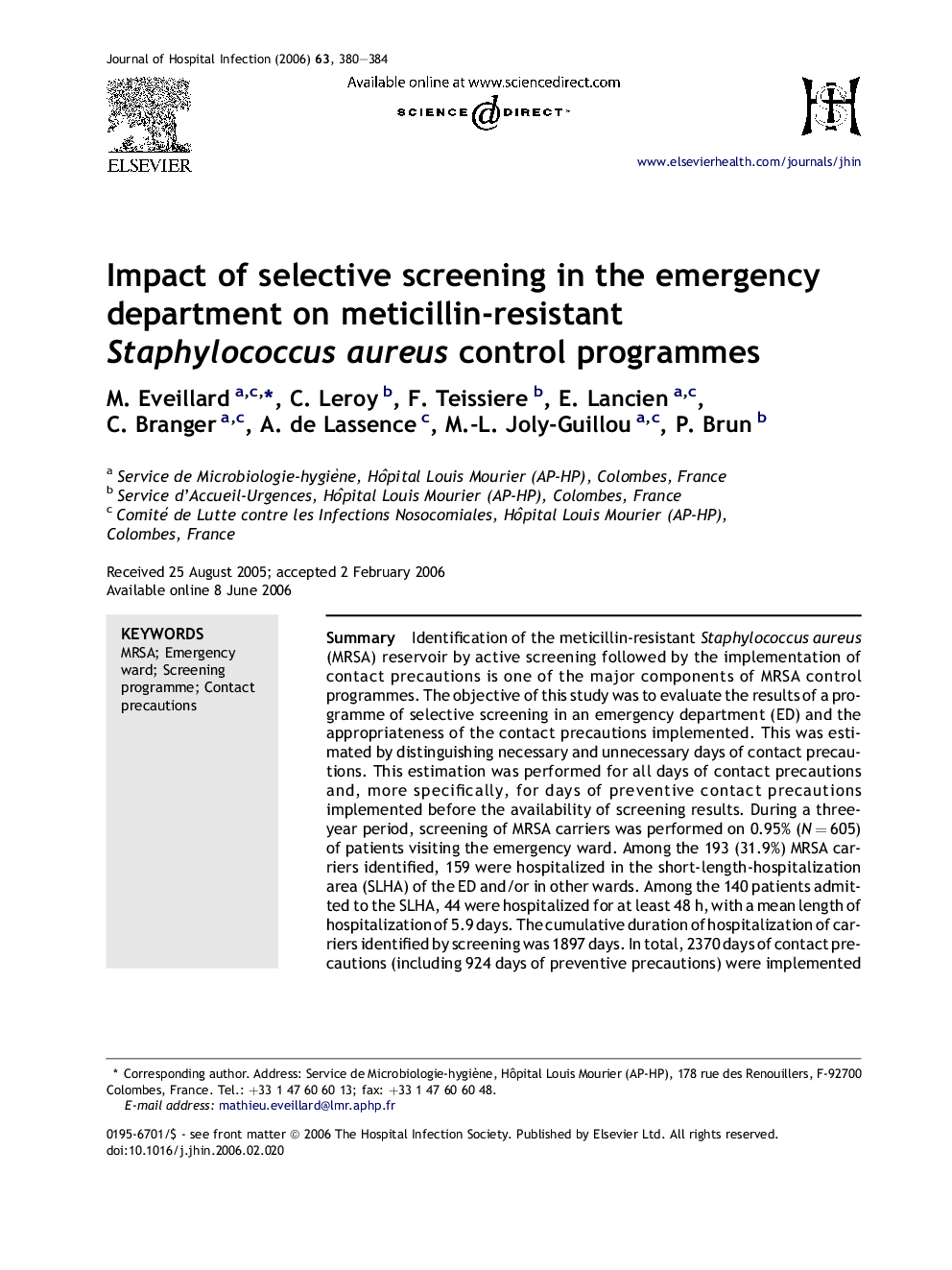| کد مقاله | کد نشریه | سال انتشار | مقاله انگلیسی | نسخه تمام متن |
|---|---|---|---|---|
| 3374188 | 1219323 | 2006 | 5 صفحه PDF | دانلود رایگان |
عنوان انگلیسی مقاله ISI
Impact of selective screening in the emergency department on meticillin-resistant Staphylococcus aureus control programmes
دانلود مقاله + سفارش ترجمه
دانلود مقاله ISI انگلیسی
رایگان برای ایرانیان
کلمات کلیدی
موضوعات مرتبط
علوم زیستی و بیوفناوری
ایمنی شناسی و میکروب شناسی
میکروبیولوژی و بیوتکنولوژی کاربردی
پیش نمایش صفحه اول مقاله

چکیده انگلیسی
Identification of the meticillin-resistant Staphylococcus aureus (MRSA) reservoir by active screening followed by the implementation of contact precautions is one of the major components of MRSA control programmes. The objective of this study was to evaluate the results of a programme of selective screening in an emergency department (ED) and the appropriateness of the contact precautions implemented. This was estimated by distinguishing necessary and unnecessary days of contact precautions. This estimation was performed for all days of contact precautions and, more specifically, for days of preventive contact precautions implemented before the availability of screening results. During a three-year period, screening of MRSA carriers was performed on 0.95% (NÂ =Â 605) of patients visiting the emergency ward. Among the 193 (31.9%) MRSA carriers identified, 159 were hospitalized in the short-length-hospitalization area (SLHA) of the ED and/or in other wards. Among the 140 patients admitted to the SLHA, 44 were hospitalized for at least 48Â h, with a mean length of hospitalization of 5.9 days. The cumulative duration of hospitalization of carriers identified by screening was 1897 days. In total, 2370 days of contact precautions (including 924 days of preventive precautions) were implemented for patients screened in the ED. Considering the whole hospital, the appropriateness of this entire programme of contact precautions for patients screened in the ED was 80.0% (52.1% for the SLHA), whereas the specific appropriateness of preventive isolation days was 48.6% (43.6% for the SLHA). This study underscores the risk of MRSA cross-transmission in the SLHA, and the usefulness of implementing a control programme of screening carriers in the ED.
ناشر
Database: Elsevier - ScienceDirect (ساینس دایرکت)
Journal: Journal of Hospital Infection - Volume 63, Issue 4, August 2006, Pages 380-384
Journal: Journal of Hospital Infection - Volume 63, Issue 4, August 2006, Pages 380-384
نویسندگان
M. Eveillard, C. Leroy, F. Teissiere, E. Lancien, C. Branger, A. de Lassence, M.-L. Joly-Guillou, P. Brun,